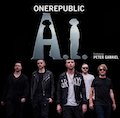


Peter Gabriel is not one for compromises. The famous Southbank video shows how he developed his classic album IV (Security). Gabriel experiments, he creates, he does not simply produce. After IV Gabriel turned away a bit from his love for world music and looked at the mainstream. The special thing about that was that he had never done that before. Perhaps he was not even aware at the time that he had created So an immaculate mainstream album.
You have to take “immaculate” with a grain of salt, though. The sound is pop, the tunes are catchy, the music occasionally peculiar. The opening song Red Rain is a challenge for a live band everytime they play it. The rhythm and the overall atmosphere of the song build on a complexity only a studio production can create. Red Rain was, in fact, a glorious failure on the This Way Up tour in 1986/87, it was played safe on the Secret World tour. At the 1998 Amnesty concert Peter messed up both lyrics and music, but on the 2002-2004 tours Gabriel finally managed to turn the song into a no-frills rock version, perfecting it, as it were, with a 16 year delay.
Red Rain was the perfect kick-off for eight songs (nine on the CD version) that embody a journey through Gabriel’s soul. The topics were not always deep, Gabriel was frequently direct, but in his way still oblique, weird, secretive. His voice puts the finishing touches on the album. Matured is the usual expression – the word ‘strong’ fits better. Like Collins in the 80s Gabriel had a special time in which he could use his voice perfectly, and Red Rain is the best example for it.
 Unlike on the opening song, Gabriel enjoys crisp pop rock songs that are somewhere between straightforward and cynical – Sledgehammer is Gabriel’s best-known song along with Solsbury Hill. The promo video is the most-played video on MTV to this day and a piece of art in its own right. A year earlier the Dire Straits video for Money For Nothing featured awkward block graphics. Gabriel went to considerable lengths to produce five minutes of animated art from crispy fried chicken to diverse fruit baskets. Sledgehammer is pure sex by subtle means. “I wanna be your sledgehammer […] come on help me do” – rarely has Gabriel been so clear. Sledgehammer is also his homage to the soul music he has always loved.
Unlike on the opening song, Gabriel enjoys crisp pop rock songs that are somewhere between straightforward and cynical – Sledgehammer is Gabriel’s best-known song along with Solsbury Hill. The promo video is the most-played video on MTV to this day and a piece of art in its own right. A year earlier the Dire Straits video for Money For Nothing featured awkward block graphics. Gabriel went to considerable lengths to produce five minutes of animated art from crispy fried chicken to diverse fruit baskets. Sledgehammer is pure sex by subtle means. “I wanna be your sledgehammer […] come on help me do” – rarely has Gabriel been so clear. Sledgehammer is also his homage to the soul music he has always loved.
Gabriel relies on innuendo, visual stimuli and his fans’ imagination. Red Rain falls at the beginning, it is followed by the Sledgehammer, and the Big Time video does not lack images that stand out for their numerous oddities. Big Time is the poppiest song on the album, the logical single and the straightest declaration of love for the mainstream. But Gabriel were not Gabriel unless he wrapped such a song in large covers of cynicism and irony. Big Time may be a song about coming to terms with how your personality changes if you become successful. Gabriel leaves it open who the song is about…
The duet on the album is called Don’t Give Up. Gabriel is not known to copy people, but here he imitates Phil Collins of all people. Collins had recycled his legendary drum fill from In The Air Tonight on the succeeding album Hello I Must Be Going (in Thru These Walls). Gabriel had Kate Bush sing on the top 10 hit Games Without Frontiers on his third album III (Melt), and he asked her again for this album. Don’t Give Up is one of Gabriel’s most debated songs. Fans are at odds with each other: A piece of art, kitsch, pathos, brilliant ballad, masterpiece, embarrassment – all these attributes have been used for the song. Don’t Give Up is a dialogue, a concept song, a good idea. Gabriel sings about a failure who does not know how to go on (“I am a man whose dreams have all deserted … no-one wants you when you lose”). Kate Bush gives voice to the counterpart that tries to encourage him. Like it – or not.
A big classic song is In Your Eyes. It has surfaced in many different versions, and, paradoxically, the studio version on So has taken the backseat. The maxi single already had a different intro, the famous “I want to stand and stare again” intro that was also used live. Another change for In Your Eyes occurred when it was placed at the end of the album instead of in the middle when So was remastered.
That Voice Again went by largely unnoticed. It was hardly ever played live (only a couple of times on piano during the Still Growing Up tour 2004). Though it has the potential of becoming a hit, it is perhaps a bit too cumbersome to become a big success.
Peter Gabriel created a most impressive piece of art when he wrote Mercy Street, the song that may secretly rule the whole album. Like Red Rain, Mercy Street has matured over the years. It was one of the strongest songs in the 2002/2003 live sets.
Five singles were released from this album, and all of them played an important role in Gabriel’s live set. Don’t Give Up was occasionally difficult to perform. Not a single version could live up to the original with Kate Bush. Red Rain frequently challenged concertgoers’ attention, and Sledgehammer did not always sound its best. Big Time was played only on the 1986/7 tours, and surprisingly again in 2007. In Your Eyes is the beast that won’t lie down – this song has gained the doubtful epithet of an annoying song a la Sussudio.
Though the album has a happy, optimistic general sound, there is a darker side to it. Mercy Street is one of the strongest ballads Gabriel has ever written, and it is popular with many fans. It is interesting to note that the flip side of the Sledgehammer single, Don’t Break This Rhythm, is something like the beta version of Mercy Street – which is a good example for the way Gabriel works and just how far he can move away from the original idea for the song.
The odd one out on this album is definitely We Do What We’re Told (Milgram’s 37). As the final track in the original version of the album it may leave the listener puzzled, the more so as it is not really an album closer. The future is wider open – welcome to the world of Peter Gabriel…
The CD version as well as the remaster contains another song called This Is The Picture (Excellent Birds). Just like We Do What We’re Told (Milgram’s 37) this one does not really fit the overall musical idea of So. They are the oddballs on the album.
Any way you look at it the fact remains that So is Peter Gabriel’s most important album. It catapulted the man who would not compromise his music into the league in which his former band mates Phil Collins and Genesis are/were at home. So is the 80s. Gabriel compromises his musical art to create a classic he cannot run away from. And while his colleague Phil Collins stressed that there was no Fairlight on his album, Gabriel made perfect use of that very music computer. He even took the top spot in the US single charts away from his former band: In summer 1986 Invisible Touch had to give way to Sledgehammer. Gabriel’s late victory over his former band or just one of music history’s ironic twists?
by Christian Gerhardts
translated by Martin Klinkhardt



The return favour album: Peter Gabriel's songs are covered by other artists.


Collaboration between Peter Gabriel and OneRepublic from 2016